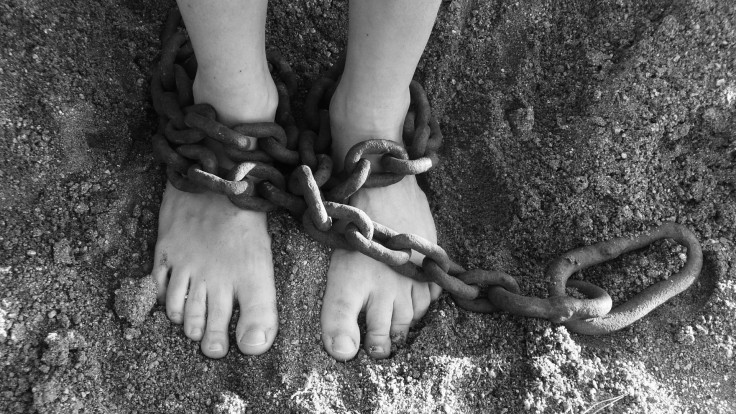Human Trafficking Takes A Serious Toll On Mental Health: PTSD and Depression Often Diagnosed In Victims

In the first study of its kind, research from the Institute of Psychiatry, Psychology & Neuroscience at King's College London (IoPPN) finds clinical evidence on the mental health effects of human trafficking. Among the most common symptoms in a patient population from South London were high levels of post-traumatic stress disorder (PTSD) and depression.
Human trafficking refers to the recruitment and movement of people, most commonly for the purpose of sexual slavery, forced labor, or other purposes of exploitation. According to the UK Home Office, between 10,000 and 13,000 people had been recruited and trafficked through means of deception and coercion. The present study is the first to analyze the clinical and sociodemographic characteristics of this group.
Researchers analyzed a population of 133 trafficked people, a group that included 37 children. The participants were in contact with secondary mental health services at the South London and Maudsley NHS Foundation Trust (SLaM), and were compared to a control group of randomly selected, non-trafficked patients.
Of the 51 percent of trafficked patients who had been taken for sexual exploitation, the most common diagnosis in the group was PTSD at a rate of 39 percent in adults and 27 percent in children. This was followed by depression at a rate of 34 percent and 27 percent, respectively. Also, 15 percent of the patients had been diagnosed with schizophrenia. Medical records further indicated high rates of past childhood abuse among trafficked adults; 43 percent compared to 76 percent among children.
Adulthood abuse was also common before, during, and after trafficking, with 60 percent of adults experiencing either physical or sexual assault.
"Research on the mental health needs of trafficked people is extremely limited and only based on evidence from those in contact with shelter services," Dr. Sian Oram, a lecturer in women’s mental health at IoPPN, said in a press release. "Our study shows that mental health services are caring for trafficked people with a range of diagnoses, including PTSD, depression, and schizophrenia."
Oram explained that the group has many complex needs that must be taken into consideration by healthcare advisors — this includes the fact that the patients may be far from home and cut off from their families. Many will have limited access to education, physical healthcare, and social activities, too.
"Although interventions such as cognitive behavioral therapy (CBT) exist for PTSD and depression, further research is required to assess their effectiveness in promoting the recovery of trafficked people," Oram said.
Dr. Oram added that mental health professionals should try to be aware of possible indicators of trafficking, and know how to respond to this serious form of abuse.



























